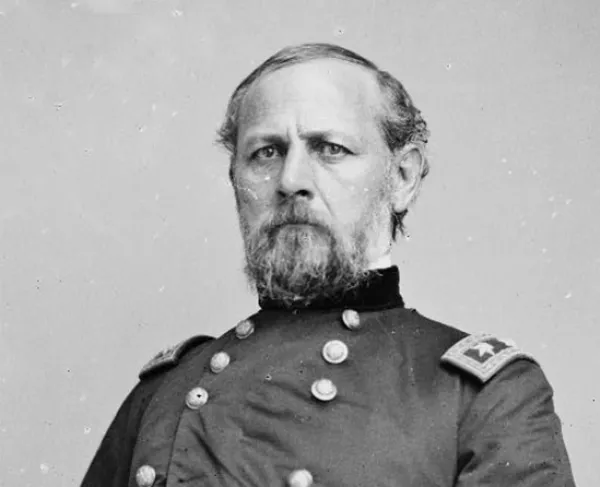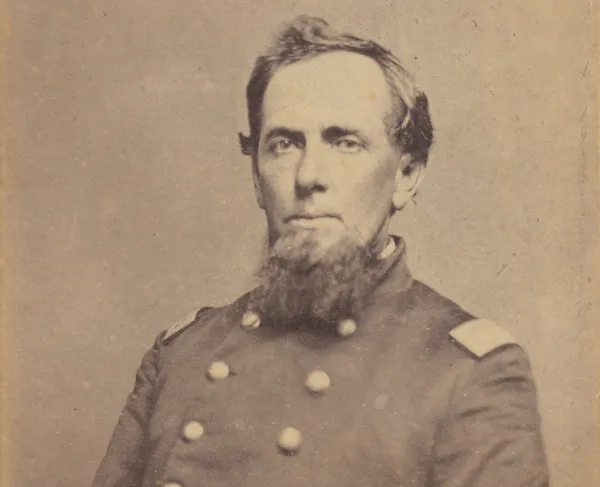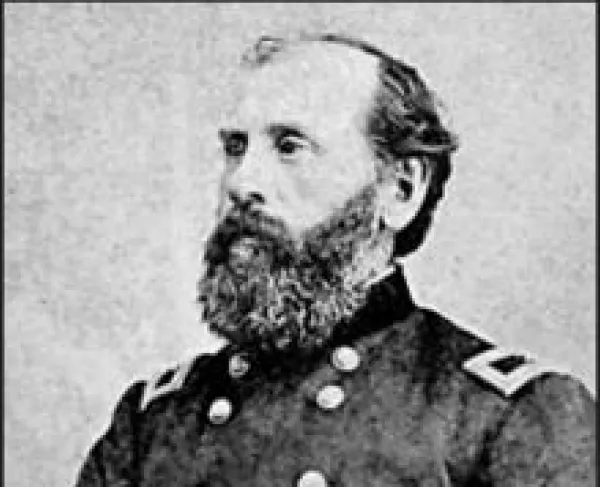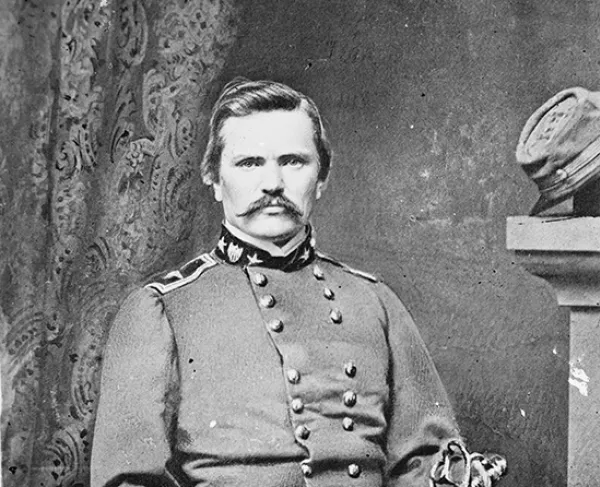Don Carlos Buell

Don Carlos Buell began his military career after graduating 32nd out of 52 from the United States Military Academy in 1841. He fought against the Florida Indians, and served on garrison frontier duty. During the Mexican-American War, Buell served with distinction, was severely wounded at Churubusco, and was brevet promotions of both captain and major. After the war, Buell served within the adjutant general’s office in numerous locations.
At the outbreak of the Civil War, Buell was serving as a lieutenant colonel and was the adjutant of the Department of the Pacific. He was promoted to brigadier general on May, 17, 1861, before he even left California, and arrived in Washington DC in order to begin training Union soldiers. He helped form the Army of the Republic, and was chosen by George B. McClellan to lead the Army of the Ohio in Kentucky. He suggested that Union forces move along the Tennessee and Cumberland Rivers towards Nashville, but was opposed by both McClellan and Abraham Lincoln. Although the plan was opposed at first, it was essentially adopted and used with great success by General Ulysses S. Grant to capture Fort Henry and Fort Donelson. As a result of the victories, Buell was able to move his army into Nashville with very little opposition. For his actions, he was promoted to major general of volunteers on March 22, 1862. He then went on to participate in the first day of the Battle of Shiloh, helping turn the tide of battle before Union forces were defeated, as well as during the Corinth campaign under General Henry W. Halleck.
In June of 1862, Buell began to move four of his divisions towards Chattanooga in order to take the city and capture important rail lines. His forces, however, were harassed by Confederate cavalry under General Nathan Bedford Forrest, and his supply lines were cut by Confederate general John H. Morgan, effectively halting his advance. In September of 1862, Buell moved into Kentucky to stop the invasion by Confederate forces under generals Braxton Bragg and Edmund Kirby Smith. He moved into Louisville unopposed, and on October 8, 1862, fought the Battle of Perryville to an indecisive conclusion. Although he had held the advance of Braxton Bragg during the battle, he did not follow the retreating forces quick enough. On October 24, 1862, Buell was relieved of his command as a result of his inaction, and replaced by General William Rosecrans. He was investigated by a military commission in November of 1862, but no decisions were made in regards to the incident. He spent more than a year waiting for new orders, but failed to receive any, and was mustered out of the service on May 23, 1864. Although Ulysses S. Grant recommended Buell to be restored to duty, Buell declined the offer and returned to civilian life.
Related Battles
4,211
3,401





